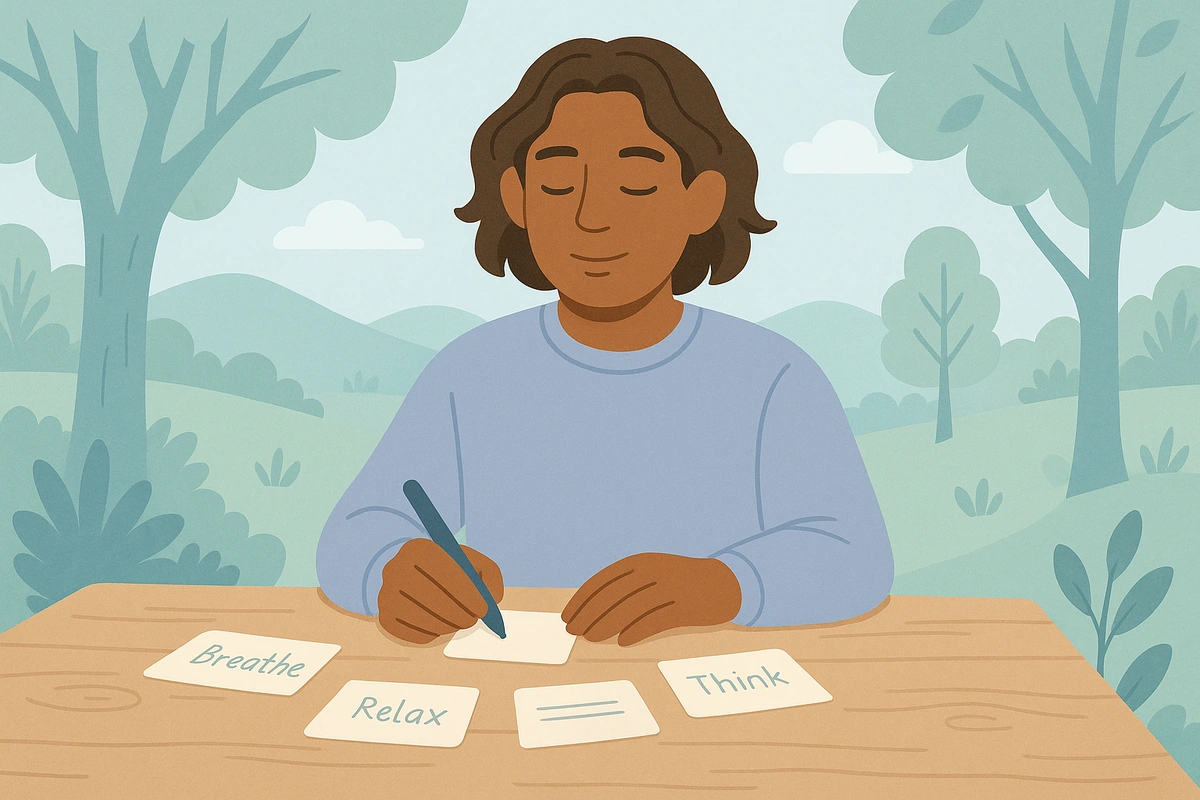Creating coping cards gives you quick access to helpful strategies during stressful moments by writing your best coping techniques on small, portable cards. These personal reminders help you remember and use effective tools when anxiety or distress makes clear thinking difficult.

Create coping cards by writing your most effective anxiety and stress management techniques on small, portable cards you can carry anywhere. These quick reference tools give you immediate access to proven strategies when emotional distress makes it hard to remember what usually helps you feel better.
When anxiety or stress hits hard, your thinking brain often goes offline and you forget all the helpful techniques you know. Coping cards work like emergency instructions that bypass the need to remember complex strategies during crisis moments. Having these written reminders in your pocket, wallet, or phone means help is always within reach when you need it most.
Coping cards work by providing external memory support when stress impairs your ability to recall helpful strategies. During intense emotions, your amygdala hijacks your thinking brain and makes memory and decision-making much harder.
Written reminders bypass the need for complex memory retrieval and give you immediate access to proven calming techniques. Research shows that having concrete action steps readily available significantly improves emotional regulation during crisis moments.
The portability factor ensures you can access coping tools regardless of location or circumstances. This consistency builds confidence in your ability to handle stress and reduces anticipatory anxiety about future difficult situations.
Physical cards engage multiple senses through touch and sight, which can help ground you in the present moment when anxiety pulls your attention toward worry spirals. The act of reaching for and reading a card creates a behavioral interruption that breaks automatic stress responses.
Personalization makes coping cards more effective because strategies that feel authentic to your personality and values work better than generic advice. Writing cards in your own words creates stronger emotional connections to the coping techniques.
Regular practice during calm periods builds what neuroscientists call "procedural memory" - automatic behavioral responses that become available even when conscious thinking is impaired by intense emotions. This practice effect strengthens neural pathways that support emotional regulation.
"I forget to use my coping cards during stressful moments" - This happens to most people initially. Set phone reminders to practice using cards weekly and consider attaching them to items you use daily like keys or phone.
"The strategies on my cards don't feel helpful anymore" - Coping needs change over time. Replace cards with techniques that feel more relevant to your current situation and stress patterns.
"I feel silly using coping cards in public" - Choose discrete techniques that don't draw attention, or use phone-based cards that look like normal texting. Remember that taking care of your mental health is important.
"My cards get damaged or lost easily" - Laminate physical cards or store them in protective sleeves. Keep multiple copies and consider digital backups to ensure constant availability.
"I can't think of enough strategies to fill multiple cards" - Start with just 3-5 cards covering basic techniques like breathing, grounding, and positive self-talk. Add more as you learn new strategies from therapy or experience.
"Reading feels too difficult when I'm really stressed" - Use larger fonts, symbols, or audio recordings instead of small text. Keep instructions extremely simple with just key words or phrases.